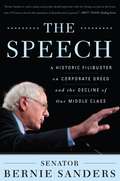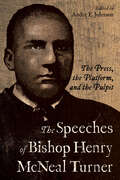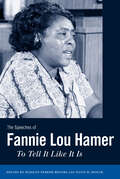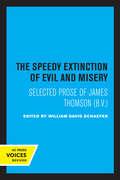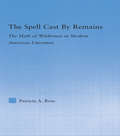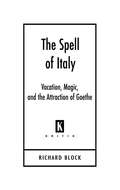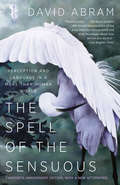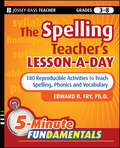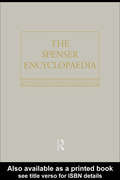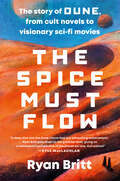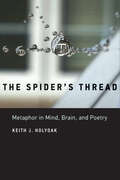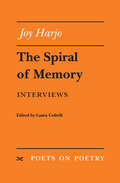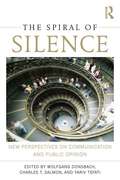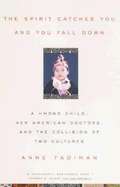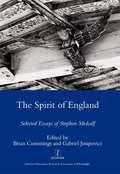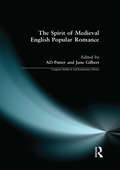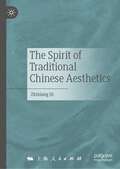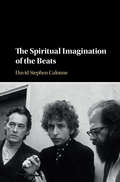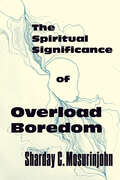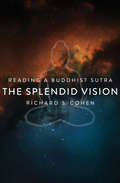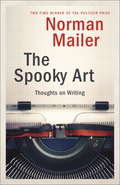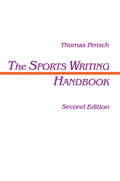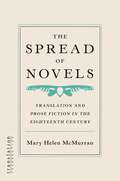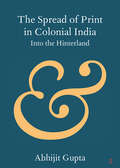- Table View
- List View
The Speech
by Bernie SandersIn the wake of President Obama's deal with congressional Republicans to preserve Bush-era tax cuts--tax cuts that gave colossal breaks to the wealthiest Americans--Senator Bernie Sanders, the independent senator from Vermont, publicly denounced the deal as an "absolute disaster" and decided to do something about it. On Friday, December 10, 2010, Senator Sanders galvanized millions of Americans with an eight-and-a-half-hour filibuster decrying the tax deal and all it symbolized: the bankrupting of the middle class, corporate greed, and the impotence and corruption of today's Congress. As Nation editor Katrina vanden Heuvel noted, "The good Senator from Vermont spoke for millions of struggling working and middle class people who feel their voices aren't being heard in a system dominated by well-funded lobbyists and corporate insiders. " Reprinted in its entirety and with a new introduction, The Speech is a People's State of the Union address, an anatomy of working and middle-class America rarely heard in the rarefied walls of the Senate.
The Speeches of Bishop Henry McNeal Turner: The Press, the Platform, and the Pulpit (Margaret Walker Alexander Series in African American Studies)
by Andre E. JohnsonHenry McNeal Turner (1834–1915) was a bishop of the African Methodist Episcopal Church, one of America’s earliest Black activists and social reformers, and an outspoken proponent of emigration. In The Speeches of Bishop Henry McNeal Turner: The Press, the Platform, and the Pulpit, Andre E. Johnson has compiled selected political speeches, sermons, lectures, and religious addresses delivered by Turner in their original form. Alongside Turner’s oratory, Johnson places the speeches in their historical context and traces his influence on Black social movements in the twentieth century, from W. E. B. Du Bois’s idea of cultural nationalism to Marcus Garvey’s "Back to Africa" movement, the modern-day civil rights movement, the Black Power movement, James Cone’s Black liberation theology, and more. While Turner was widely known as a great orator and published copious articles, essays, and editorials, no single collection of only Turner’s speeches has yet been published, and scholars have largely ignored his legacy. This volume recovers a lost voice within American and African American rhetorical history, expanding the canon of the African American oratorical tradition.
The Speeches of Fannie Lou Hamer: To Tell It Like It Is (Margaret Walker Alexander Series in African American Studies)
by Maegan Parker Brooks and Davis W. HouckMost people who have heard of Fannie Lou Hamer (1917–1977) are aware of the impassioned testimony that this Mississippi sharecropper and civil rights activist delivered at the 1964 Democratic National Convention. Far fewer people are familiar with the speeches Hamer delivered at the 1968 and 1972 conventions, to say nothing of addresses she gave closer to home, or with Malcolm X in Harlem, or even at the founding of the National Women's Political Caucus. Until now, dozens of Hamer's speeches have been buried in archival collections and in the basements of movement veterans. After years of combing library archives, government documents, and private collections across the country, Maegan Parker Brooks and Davis W. Houck have selected twenty-one of Hamer's most important speeches and testimonies. As the first volume to exclusively showcase Hamer's talents as an orator, this book includes speeches from the better part of her fifteen-year activist career delivered in response to occasions as distinct as a Vietnam War Moratorium Rally in Berkeley, California, and a summons to testify in a Mississippi courtroom. Brooks and Houck have coupled these heretofore unpublished speeches and testimonies with brief critical descriptions that place Hamer's words in context. The editors also include the last full-length oral history interview Hamer granted, a recent oral history interview Brooks conducted with Hamer's daughter, as well as a bibliography of additional primary and secondary sources. The Speeches of Fannie Lou Hamer demonstrates that there is still much to learn about and from this valiant black freedom movement activist.
The Speedy Extinction of Evil and Misery: Selected Prose of James Thomson (B. V.)
by William David SchaeferThis title is part of UC Press's Voices Revived program, which commemorates University of California Press’s mission to seek out and cultivate the brightest minds and give them voice, reach, and impact. Drawing on a backlist dating to 1893, Voices Revived makes high-quality, peer-reviewed scholarship accessible once again using print-on-demand technology. This title was originally published in 1967.
The Spell Cast by Remains: The Myth of Wilderness in Modern American Literature (Literary Criticism and Cultural Theory)
by Patricia RossFirst published in 2006. Routledge is an imprint of Taylor & Francis, an informa company.
The Spell of Italy: Vacation, Magic, and the Attraction of Goethe
by Richard BlockA study of the lure of Italy in German culture from the eighteenth to the twentieth century.
The Spell of the Sensuous: Perception and Language in a More-than-Human World
by David AbramAnimal tracks, word magic, the speech of stones, the power of letters, and the taste of the wind all figure prominently in this intellectual tour de force that returns us to our senses and to the sensuous terrain that sustains us. This is a major work of ecological philosophy that startles the senses out of habitual ways of perception.
The Spelling Teacher's Lesson-a-Day
by Fry Edward B.The effective and fun-filled way to teach spelling to elementary students The Spelling Teacher's Lesson-a-Day gives teachers 180 engaging and ready-to-use lessons-one for each day of the school year-that boost spelling skills in students grades 3-6. These lessons may be used as "sponge" or "hook" activities (five-minute lessons to start off each school day) or teachers may simply pick and choose activities from within the book for the occasional spelling lesson. Fry teaches spelling patterns by contrasting homophones (like-sounding words) to help students recognize these spelling patterns in more complex words. He also boosts students' spelling skills by demystifying contractions, abbreviations, capitalization, silent letters, suffixes and prefixes, and more. Offers an easy-to-use method for teaching spelling that has been proven to be effective Includes 180 ready-to-use, reproducible lessons-one for each day of the school year A new volume in the new series 5-Minute FUNdamentals This book is designed to be used by classroom teachers, homeschoolers, tutors, and parents.
The Spenser Encyclopedia
by A. C. Hamilton Donald Cheney W. F. Blissett David A. Richardson William W. Barker'This masterly work ought to be The Elizabethan Encyclopedia, and no less.' - Cahiers ElizabethainsEdmund Spenser remains one of Britain's most famous poets. With nearly 700 entries this Encyclopedia provides a comprehensive one-stop reference tool for:* appreciating Spenser's poetry in the context of his age and our own* understanding the language, themes and characters of the poems* easy to find entries arranged by subject.
The Spice Must Flow: The Story of Dune, from Cult Novels to Visionary Sci-Fi Movies
by Ryan BrittGeek-culture expert Ryan Britt takes us behind the pages and scenes of the science-fiction phenomenon Dune, charting the series' life from cult sci-fi novels to some of the most visionary movies of all time. Using original, deep-access reporting, extensive research, and insightful commentary, The Spice Must Flow brings the true popularity of Dune out into the light for the very first time. With original interviews with the beloved actors and directors behind the films—including Timothée Chalamet, Kyle Maclachlan, Denis Villeneuve, Patrick Stewart, Rebecca Ferguson, Alec Newman, and many more— The Spice Must Flow also examines the far-reaching influence of Dune on art, music, politics, and, most notably, its status as the first ecological science-fiction story specifically concerned with climate change. Britt skillfully and entertainingly guides readers through the history of how the Dune universe has unfolded, including the novel&’s unlikely evolution from a failed piece of journalism about Oregon sand dunes into an epic science-fiction story, the way Herbert&’s work inspired George Lucas, untold stories from the 1984 David Lynch film, the knife-edge balance between blockbuster hit and indie film Timothée Chalamet brings to the 2021 movie, and the exciting future of the franchise. Through a blend of narrative, oral history elements, and fascinating trivia, The Spice Must Flow is the new essential guide to the behind-the-scenes story of Dune. The fiction of Dune is deadly serious, but the real-life story of how it came into existence is full of wonder, surprises, and spice.
The Spider's Thread: Metaphor in Mind, Brain, and Poetry (The\mit Press Ser.)
by Keith J. HolyoakAn examination of metaphor in poetry as a microcosm of the human imagination—a way to understand the mechanisms of creativity.In The Spider's Thread, Keith Holyoak looks at metaphor as a microcosm of the creative imagination. Holyoak, a psychologist and poet, draws on the perspectives of thinkers from the humanities—poets, philosophers, and critics—and from the sciences—psychologists, neuroscientists, linguists, and computer scientists. He begins each chapter with a poem—by poets including Samuel Taylor Coleridge, Sylvia Plath, Walt Whitman, Emily Dickinson, Robert Frost, Theodore Roethke, Du Fu, William Butler Yeats, and Pablo Neruda—and then widens the discussion to broader notions of metaphor and mind. Holyoak uses Whitman's poem “A Noiseless Patient Spider” to illustrate the process of interpreting a poem, and explains the relevance of two psychological mechanisms, analogy and conceptual combination, to metaphor. He outlines ideas first sketched by Coleridge—who called poetry “the best words in their best order”—and links them to modern research on the interplay between cognition and emotion, controlled and associative thinking, memory and creativity. Building on Emily Dickinson's declaration “the brain is wider than the sky,” Holyoak suggests that the control and default networks in the brain may combine to support creativity. He also considers, among other things, the interplay of sound and meaning in poetry; symbolism in the work of Yeats, Jung, and others; indirect communication in poems; the mixture of active and passive processes in creativity; and whether artificial intelligence could ever achieve poetic authenticity. Guided by Holyoak, we can begin to trace the outlines of creativity through the mechanisms of metaphor.
The Spiral of Memory: Interviews (Poets On Poetry)
by Joy HarjoWith the recently-published The Woman Who Fell from the Sky, Joy Harjo has emerged as one of the most powerful Native American voices of her generation. Over the past two decades, Harjo has refined and perfected a unique poetic voice that speaks her multifaceted experience as Native American, woman and Westerner in twentieth-century society. The Spiral of Memory gathers the conversations in which Harjo has articulated her singular yet universal perspective on the world and her poetry. She reflects upon the nuances and development of her art, the importance of her origins, the arduous reconstruction of the tribal past, the dramatic confrontation between Native American and Anglo civilizations, the existential and artistic itinerary through present-day America, and other provocative and profoundly human themes. Joy Harjo is the author of several volumes of poetry. She received awards from the National Endowment for the Arts, the Before Columbus Foundation, and the Poetry Society of America. She is Professor of English, University of New Mexico, Albuquerque. Laura Coltelli is Associate Professor of American Literature, University of Pisa.
The Spiral of Silence: New Perspectives on Communication and Public Opinion
by Wolfgang Donsbach Charles T. Salmon Yariv TsfatiSince its original articulation in the early 1970s, the 'spiral of silence' theory has become one of the most studied theories of communication and public opinion. It has been tested in varied sociopolitical contexts, with different issues and across communication systems around the world. Attracting the interest of scholars from communication, political science, sociology, public opinion and psychology, it has become both the subject of tempestuous academic debate as well as a mainstay in courses on communication theory globally. Reflecting substantial new thinking, this collection provides a comprehensive examination of the spiral of silence theory, offering a synthesis of prior research as well as a solid platform for future study. It addresses various ideological and methodological criticisms of the theory, links the theory with allied areas of scholarship, and provides analyses of empirical tests. Contributors join together to present a breadth of disciplinary and international perspectives. As a distinctive and innovative examination of this influential theory, this volume serves as a key resource for future research and scholarship in communicaiton, public opinion, and political science.
The Spirit Catches You and You Fall Down: a Hmong child, her American doctors, and the collision of two cultures
by Anne FadimanWhen three-month-old Lia Lee Arrived at the county hospital emergency room in Merced, California, a chain of events was set in motion from which neither she nor her parents nor her doctors would ever recover. Lia's parents, Foua and Nao Kao, were part of a large Hmong community in Merced, refugees from the CIA-run "Quiet War" in Laos. The Hmong, traditionally a close-knit and fiercely people, have been less amenable to assimilation than most immigrants, adhering steadfastly to the rituals and beliefs of their ancestors. Lia's pediatricians, Neil Ernst and his wife, Peggy Philip, cleaved just as strongly to another tradition: that of Western medicine. When Lia Lee entered the American medical system, diagnosed as an epileptic, her story became a tragic case history of cultural miscommunication.<P> Parents and doctors both wanted the best for Lia, but their ideas about the causes of her illness and its treatment could hardly have been more different. The Hmong see illness aand healing as spiritual matters linked to virtually everything in the universe, while medical community marks a division between body and soul, and concerns itself almost exclusively with the former. Lia's doctors ascribed her seizures to the misfiring of her cerebral neurons; her parents called her illness, qaug dab peg--the spirit catches you and you fall down--and ascribed it to the wandering of her soul. The doctors prescribed anticonvulsants; her parents preferred animal sacrifices. Winner of the National Book Critics Circle Award for Nonfiction.
The Spirit of England: Selected Essays of Stephen Medcalf
by Stephen MedcalfStephen Medcalf (1937-2006) was an essayist, in the best traditional sense of that calling: a writer not of books but of substantial and justly celebrated essays, widely read in the Times Literary Supplement and elsewhere. Medcalf's abiding question to the world was the Psalmist's: 'What is man that thou art mindful of him?' His was a Blakean sense of Englishness, far from the chocolate-box painting or the television adaptation, and for him the strongest writers were those keenly aware of their roots in the classical, Anglo-Saxon or Celtic past. By gathering together Medcalf's most important work, this volume shows the coherence of his thinking, and of the elusive, complicated literary heritage he celebrated, one which acknowledges the Greco-Roman strain, the Christian strain, the down-to-earth humour and the sly irony. Thirteen substantial essays cover Virgil, the Bible, the English translation of Alfred, Piers Plowman, the 'half-alien culture' of the high Middle Ages, Chaucer's contemporary Thomas Usk, Shakespeare's images of resurrection, Horace and Kipling juxtaposed, G. K. Chesterton, T. S. Eliot's use of Ovid, P. G. Wodehouse, William Golding, John Betjeman, Geoffrey Hill and other writers. The book concludes with perhaps Medcalf's most personal article of all: his account of finding a baby in a phone box on a cold winter's night, which first appeared in the Guardian Christmas Supplement in 2002.
The Spirit of Medieval English Popular Romance (Longman Medieval and Renaissance Library)
by Jane Gilbert Ad PutterThe Middle English popular romances enjoyed a wide appeal in later medieval Britain, and even today students of medieval literature will encounter examples of the genre, such as Sir Orfeo, Sir Tristrem, and Sir Launfal. This collection of twelve specially commissioned essays is designed to meet the need for a stimulating guide to the genre. Each essay introduces one popular romance, setting it in its literary and historical contexts, and develops an original interpretation that reveals the possibilities that popular romances offer for modern literary criticism. A substantial introduction by the editors discusses the production and transmission of popular romances in the Middle Ages, and considers the modern reception of popular romance and the interpretative challenges offered by new theoretical approaches. Accessible to advanced students of English, this book is also of interest to those working in the field of medieval studies, comparative literature, and popular culture.
The Spirit of Traditional Chinese Aesthetics
by Zhixiang QiThis book differentiates between and analyzes the Confucian, Taoist and Buddhist spirit in traditional Chinese aesthetics, explains the core characteristics and methods of traditional Chinese aesthetics, and conveys the author’s overall thinking on the spirit of traditional Chinese aesthetics. Given its scope, the book is of great value in terms of understanding and promoting China’s unique traditional culture.
The Spiritual Imagination of the Beats
by Calonne David StephenThe Spiritual Imagination of the Beats is the first comprehensive study to explore the role of esoteric, occult, magical, theosophical, Gnostic, Hindu and Buddhist traditions in the work of eleven major Beat authors. The opening chapter discusses Kenneth Rexroth and Robert Duncan as predecessors and important influences on the spiritual orientation of the Beats. David Stephen Calonne draws comparisons throughout the book between the various approaches towards spiritual matters of individual Beat writers - for example, Burroughs registered significant objections to Buddhism, while Ginsberg and Kerouac devoted considerable time to studying Buddhist history and texts. This book also focuses on authors who have often been neglected in Beat studies - Diane di Prima, Bob Kaufman and Philip Whalen. In addition, several understudied works such as Gregory Corso's 'The Geometric Poem' are given close attention. Calonne also introduces important themes from the history of heterodox spirituality - Manicheanism, alchemy and Tarot - and demonstrates how inextricably these ideas shaped the Beat literary imagination.
The Spiritual Significance of Overload Boredom
by Sharday C. MosurinjohnThe spiritual crisis of the twenty-first century is overload boredom. There is more information, content, and stimulation than ever before, and none of it is waiting passively to be consumed. The demands exceed our capacities.The Spiritual Significance of Overload Boredom makes the case that withdrawal and resistance are not our only options: we can choose kēdia, an ethic of care. Rather than conceiving the world of information as external, Sharday Mosurinjohn turns to the sensational and emotional, focusing on the ways the digital age has radically reconfigured our interior lives. Using an innovative method of affective aesthetic speculation, Mosurinjohn engages the world of art, literature, and comedy for a series of unexpected case studies that make strange otherwise familiar scenes of overload boredom: texting, browsing social media, and performing information work. Ultimately, she shows that the opposite of boredom is not interest but meaning, and that we can only make it by curating the overload.The Spiritual Significance of Overload Boredom is a bold and original intervention for the present condition, unsettling the framing of existing work around technological modernity and its discontents.
The Splendid Vision: Reading a Buddhist Sutra
by Richard CohenFeaturing the first-ever English translation of the "Splendid Vision Sutra," a sixth-century Indian Mahayana Buddhist scripture known for its rich ritual magic and worship of bodhisattva-goddesses, this volume explicates the text's cultural significance as a source of extraordinary value, cosmic truth, and existential meaning. The ancient author of the "Splendid Vision Sutra" promises every imaginable reward to those who heed its words and rites, whether one's desire is to become king, enjoy heavenly pleasures for thousands of millennia, or attain the spiritual summit of advanced bodhisattvahood. Richard S. Cohen carefully analyzes this religious rhetoric, developing a heuristic model of "scripture" that extends beyond Buddhist literature. In his framework, a text becomes sacred scripture when a community accepts it as a receptacle of extraordinary value, an authoritative source of cosmic truth, and a guide for meaningful action. While clarifying these points, Cohen untangles the discursive skein through which the "Splendid Vision Sutra" expresses its authority, inspires readers to accept that authority, and promises superior power and accomplishments to those who implement its teachings. Exploring ways of living and reading a text, Cohen draws on Marcel Duchamp's theory of found art, Jerzy Grotowski's idealization of the holy actor, and other formulations, identifying contingencies, uncertainties, and incompleteness in the lived present and its determination of our reception of the past. More than a mere introduction to an important work, The Splendid Vision opens a window into religious experience and practice in contemporary environments as well as in the world of the sutra.
The Spooky Art: Thoughts on Writing
by Norman Mailer"Writing is spooky," according to Norman Mailer. "There is no routine of an office to keep you going, only the blank page each morning, and you never know where your words are coming from, those divine words." In The Spooky Art, Mailer discusses with signature candor the rewards and trials of the writing life, and recommends the tools to navigate it. Addressing the reader in a conversational tone, he draws on the best of more than fifty years of his own criticism, advice, and detailed observations about the writer's craft.
The Sport of Queens: The Autobiography of Dick Francis
by Dick FrancisDick Francis is one of the best horsemen in England. He is also a suspense novelist. "A fine mystery writer-perhaps one of the best in the English language," says a reviewer in the Thoroughbred Record. "Dick Francis turns out to be a writer of champion class," says the London Times. "Mr. Francis is not only a very fine writer, but he is an authority on aspects of the thoroughbred scene," says Bing Crosby. Dick Francis (Welshman, ex-jockey, now Racing Editor of London's Sunday Express), author of such popular novels as Blood Sport and Flying Finish, talks about his early life in this informative, beguiling book which will fascinate racing fans and horse lovers and will be of great interest to the readers of his fiction. "I learned to ride, when I was five, on a donkey," says Dick Francis. He learned on his grandfather's farm in Pembrokeshire. His grandfather, Willie Thomas, "was a great man in the Victorian tradition. I remember him as a tall man and certainly he was a popular man. Nearly all our food came from the farm itself. Butter and cheese were made in the dairy and twice a week the great kitchen would be filled with the unique warm-winey smell of bread baking Although the smells and warmth of the kitchen were enticing, the stables drew me most. My grandfather rode to hounds regularly two or three days a week, and he was justly proud of his hunters which he used to breed with great care and success." During most of Dick Francis' childhood his father was the manager of W J. Smith's Hunting Stables and many of the Royal Family were among his father's pupils and patrons. Young Dick Francis had the opportunity to ride every sort of pony. Soon his father was asking his advice about horses and Dick was winning prizes as the "Best Boy Rider." He tells how he worked toward becoming a jockey, and describes vividly the day- to-day perils and pleasures of life as a steeplechase jockey. He talks about his war years with the R.A.F., compares American and English racing and gives firsthand information about many of the world's most famous tracks and famous horse owners. It all added up to an exciting life, and he shares it with his readers-up to the fatal moment when, leading the field in the 1956 Grand National, his horse, the Queen Mother's Devon Loch, fell mysteriously a breath away from the winning post.
The Sports Writing Handbook (Routledge Communication Series)
by Thomas FenschCompletely revised and updated in a second edition, this volume represents the only book ever written that analyzes sports writing and presents it as "exceptional" writing. Other books discuss sports writers as "beat reporters" in one area of journalism, whereas this book shows aspiring sports writers a myriad of techniques to make their writing stand out. It takes the reader through the entire process of sports writing: observation, interviewing techniques, and various structures of articles; types of "leads;" transitions within an article; types of endings; use of statistics; do's and don'ts of sports writing; and many other style and technique points. This text provides over 100 examples of leads drawn from newspapers and magazines throughout the country, and also offers up-to-date examples of sports jargon from virtually every major and minor sport played in the U.S.
The Spread of Novels: Translation and Prose Fiction in the Eighteenth Century (Translation/Transnation #23)
by Mary Helen McMurranFiction has always been in a state of transformation and circulation: how does this history of mobility inform the emergence of the novel? The Spread of Novels explores the active movements of English and French fiction in the eighteenth century and argues that the new literary form of the novel was the result of a shift in translation. Demonstrating that translation was both the cause and means by which the novel attained success, Mary Helen McMurran shows how this period was a watershed in translation history, signaling the end of a premodern system of translation and the advent of modern literary exchange. McMurran illuminates aspects of prose fiction translation history, including the radical revision of fiction's origins from that of cross-cultural transfer to one rooted by nation; the contradictory pressures of the book trade, which relied on translators to energize the market, despite the increasing devaluation of their labor; and the dynamic role played by prose fiction translation in Anglo-French relations across the Channel and in the New World. McMurran examines French and British novels, as well as fiction that circulated in colonial North America, and she considers primary source materials by writers as varied as Frances Brooke, Daniel Defoe, Samuel Richardson, and Françoise Graffigny. The Spread of Novels reassesses the novel's embodiment of modernity and individualism, discloses the novel's surprisingly unmodern characteristics, and recasts the genre's rise as part of a burgeoning vernacular cosmopolitanism.
The Spread of Print in Colonial India: Into the Hinterland (Elements in Publishing and Book Culture)
by Abhijit GuptaThis study focuses on the spread of print in colonial India towards the middle and end of the nineteenth century. Till the first half of the century, much of the print production in the subcontinent emanated from presidency cities such as Calcutta, Bombay and Madras, along with centres of missionary production such as Serampore. But with the growing socialization of print and the entry of local entrepreneurs into the field, print began to spread from the metropole to the provinces, from large cities to mofussil towns. This Element will look at this phenomenon in eastern India, and survey how printing spread from Calcutta to centres such as Hooghly-Chinsurah, Murshidabad, Burdwan, Rangpur etc. The study will particularly consider the rise of periodicals and newspapers in the mofussil, and asses their contribution to a nascent public sphere.
